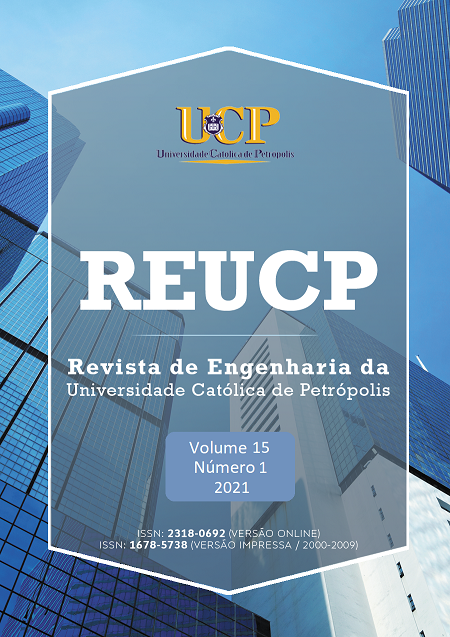EVOLUTION OF SANITATION IN BRAZIL
A CRITICAL ANALYSIS ON SOLID WASTES SERVICES BASED ON THE SNIS DATASET
Keywords:
Índices de Avaliação do Saneamento, Saneamento Básico, Universalização do Saneamento, Resíduos Sólidos UrbanosAbstract
Sanitation incorporates services and operational facilities in its concept, aiming at the universalization of water supply, sewage collection, solid waste, urban cleaning, urban drainage, and stormwater management. Given this fact, the Brazilian National Sanitation Information System, SNIS, under the management of the Ministry of Regional Development, which is responsible for collecting data from local providers of sanitation services. This study applied statistical tests in the analysis of the evolutionary scenario of sanitation in Brazil (2012-2016), exploring data and showing improvement points, obstacles, and trends in the indicators, which could guide and support the management and management of sanitation in the country. Information and indicators contained in the SNIS’ annual reports on solid waste management were observed, focusing on: per capita expenditure on solid waste management in relation to the urban population (IN006); coverage rate of the direct home collection service of the urban population of the municipality (IN014); mass collected per capita in relation to the urban population (IN021); rate of solid construction waste collected by the city in relation to the total amount collected (IN026); rate of recovery of recyclable materials in relation to the total amount collected (IN031) and rate of waste from health services collected in relation to the total amount collected (IN037). From the elaboration of graphs and the analysis of the statistical tests, it was possible to compare the data and show characteristics and deficiencies of waste management in the macro-regions of Brazil. Coverage of household collection has remained at high rates with average values above 89 % in the period from 2014 to 2016, although there is a deficit in services to residents of the North and Northeast regions. It was also evidenced an increase in expenses related to the management of urban solid waste and the difficulty in ensuring the economic and financial balance of the sector. The generation of waste from health services has increased, and so has the final disposal without prior treatment which deserves attention. That said, the verification of this information contributes to the diagnosis of the country's health situation with regard to solid waste, in order to subsidize management and decision making with a view to the universalization of services.
Downloads
Downloads
Published
Issue
Section
License
Autores que publicam nesta revista concordam com os seguintes termos:
I. O autor detém o copyright da sua contribuição, que abrange todos os objetos digitais que podem resultar na publicação eletrônica subsequente ou de distribuição. Após a aceitação da obra, o autor concede definitivamente à Editora o direito de primeira publicação da obra.
II. Ao enviar sua contribuição à REUCP, o autor assume e garante que:
1. Não foi previamente publicada nem está sendo avaliada por outra editora ou veículo de comunicação;
2. Não está pendente de revisão, exceto das eventualmente exigidas durante o processo editorial da REUCP;
3. As opiniões emitidas em sua obra são de sua inteira e exclusiva responsabilidade;
4. A obra não contém declaração falsa ou violação de trabalhos ou de direitos de terceiros;
5. A obra não contém difamação, invasão de privacidade ou assunto ilegal;
6. A revista poderá submeter seu original à avaliação de pessoas qualificadas e conservará sigilo e anonimato dos seus avaliadores/pareceristas;
7. A revista tem o direito de efetuar, em seu original, alterações de ordem normativa, ortográfica e gramatical, com vistas a manter o padrão culto da língua, respeitando, porém, o estilo autoral;
8. Concorda em indenizar a Editora UCP por violação de direito autoral ou qualquer outro processo movido por terceiros decorrente da publicação de seu trabalho (artigo ou resenha) na REUCP.
9. Concede à REUCP e à Editora UCP, bem como seus agentes, o direito não exclusivo e perpétua licença para publicar, arquivar e tornar acessível a obra, no todo ou em parte, em todas as formas de mídia agora ou no futuro conhecidas sob uma Licença Creative Commons 3.0 ou seu equivalente, que, para evitar dúvidas, permite que outros copiem, distribuam a obra sob as condições descritas no site da Creative Commons.
10. A pedido da Editora, concorda em fornecer prontamente à Editora UCP, às expensas do próprio autor, prova escrita das permissões, licenças e autorizações para uso de material de terceiros incluídos em sua contribuição (artigo ou resenha) à REUCP.
III. Ao enviar sua contribuição à REUCP, o autor concorda com os termos desta declaração.

